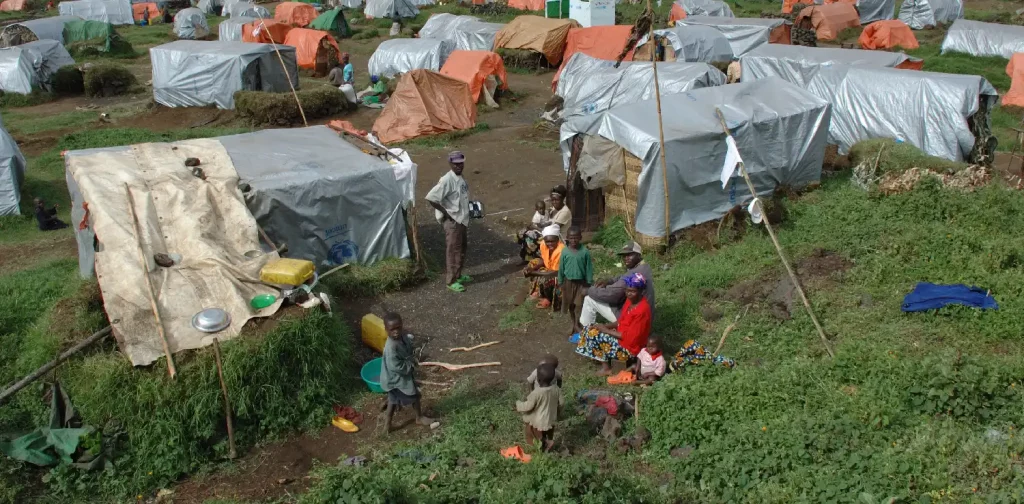Toward Environmentally Sustainable Refugee Camps with the CAMP+ Initiative

Photo by Julien Harneis on Flickr
Everyone has the right to a decent life, the fulfillment of basic needs, and security. In times of crises, people are often unable to feel secure, let alone meet their needs, forcing them to leave their homes and seek refuge in safer areas. With growing numbers of refugees worldwide, providing refugee camps with adequate facilities and minimal environmental impact is important. CAMP+ is an initiative that aims to address this issue.
Growing Numbers of Refugees
As of June 2023, the global forced displacement crisis has escalated. Over 110 million people are forcibly displaced from their homes due to factors such as persecution, conflict, violence, and human rights violations. The global refugee population reached 36.4 million by mid-2023, representing a 3% increase from the end of 2022.
In Gaza alone, nearly 2 million Palestinians are displaced from their homes as of January 2024 due to the ongoing conflict and violence from Israel. They were forced to flee to certain “safe zones” within Gaza or UN-administered camps in the West Bank, Jordan, and Lebanon.
The rising number of refugees means increased demand for refugee camps. However, establishing these camps could lead to potential problems, such as deforestation for space and energy or water and soil pollution caused by piling waste. These conditions can harm the environment and ecosystems, contributing to land degradation and ecological impact.
CAMP+ Initiative for Environmentally Sustainable Refugee Camps
In response to the environmental challenges refugee camps pose, there is a growing recognition of the urgency for environmentally sustainable practices for these camps. One of the existing efforts to address this is CAMP+.
CAMP+ is an initiative by CARE. In Uganda, CAMP+ has been working since 2020 towards creating eco-friendly refugee camps. This project introduces solar-powered communal kitchens to reduce reliance on non-renewable fuels for cooking and provide a long-term green energy source.
Additionally, CAMP+ has established plastic recycling plants within the refugee camp to tackle waste challenges. This low-waste approach supports efficient waste management while creating economic opportunities. Refugees in the camp are encouraged to craft locally sold products like buckets, mats, and wires using recycled materials through this initiative.
CAMP+ showcases that even in the face of displacement and adversity, minimizing the environmental impact and preventing even more harm is necessary and feasible. These practices serve as an example of the right step towards more environmentally sustainable refugee camps around the globe.
Addressing Root Cause
Minimizing ecological impacts to ensure humanitarian assistance is essential. Still, creating genuinely sustainable refugee camps extends beyond reducing environmental harm.
There are many issues to consider, like protection against gender-based violence, economic empowerment, and access to basic services such as clean water, healthcare, and sanitation. Inclusion and accessibility for vulnerable groups like people with disabilities, children, and older people in refugee camps are also crucial.
Most importantly, addressing the root cause remains a critical solution to prevent displacement and promote peacebuilding. Nation leaders must come together to advance conflict resolution, disaster risk reduction, and human rights for all.

Co-create positive impact for people and the planet.
Amidst today’s increasingly complex global challenges, equipping yourself, team, and communities with interdisciplinary and cross-sectoral insights on sustainability-related issues and sustainable development is no longer optional — it is a strategic necessity to stay ahead and stay relevant.


 Indian Gig Workers Push Back Against 10-Minute Delivery Service Strain
Indian Gig Workers Push Back Against 10-Minute Delivery Service Strain  Call for Governance: Grassroots Initiatives Look to Scale Efforts to Conserve Depleting Groundwater
Call for Governance: Grassroots Initiatives Look to Scale Efforts to Conserve Depleting Groundwater  Integrating Environment, Climate Change, and Sustainability Issues into Education Systems
Integrating Environment, Climate Change, and Sustainability Issues into Education Systems  Finally Enforced: Understanding the UN High Seas Treaty
Finally Enforced: Understanding the UN High Seas Treaty  Risks and Opportunities of Submarine Communication Cables for Sustainable Development
Risks and Opportunities of Submarine Communication Cables for Sustainable Development  Rising Attacks and Violence Against Land and Environmental Defenders
Rising Attacks and Violence Against Land and Environmental Defenders